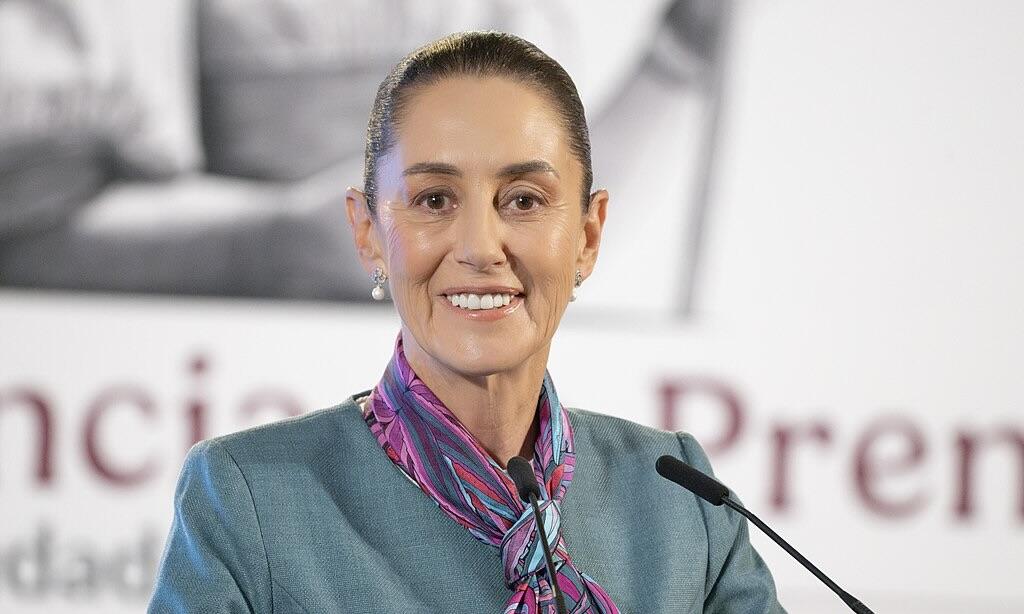In a recent development, Mexican President Claudia Sheinbaum has firmly rejected claims that she agreed to close Mexico's borders to curb migration into the United States. This assertion came after U.S. President-elect Donald Trump announced that Sheinbaum had consented to halt migrant crossings through Mexico.
Contrasting Statements on Border Policy
Following a conversation between the two leaders, Trump stated that Sheinbaum had agreed to stop migration through Mexico, effectively closing the southern U.S. border. However, Sheinbaum refuted this, emphasizing that Mexico's approach focuses on respecting human rights and assisting migrants before they reach the U.S. border. She reiterated, "Mexico's position is not to close borders but to build bridges between governments and between peoples."
Implications for U.S.-Mexico Relations
Trump's announcement included plans to impose a 25% tariff on Mexican imports to pressure Mexico into reducing illegal immigration and drug smuggling. Sheinbaum's stance suggests potential friction in forthcoming diplomatic engagements. She emphasized collaboration without coercion, stating that Mexico aims to strengthen regional cooperation rather than resort to border closures.
Public Reaction
The contrasting narratives have ignited discussions on social media platforms:
-
@BorderWatcher: "Sheinbaum's refusal to close borders shows a commitment to human rights over political pressure."
-
@TradeAnalyst: "Trump's tariff threats could backfire, harming both economies. Diplomacy is key."
-
@HumanRightsAdvocate: "Building bridges, not walls. Applauding Mexico's humane approach to migration."
-
@PolicyCritic: "Mixed messages from leaders create uncertainty. Clear communication is essential."
-
@GlobalCitizen: "International cooperation should focus on root causes of migration, not punitive measures."
-
@EconomistView: "Tariff wars seldom end well. Hope cooler heads prevail in U.S.-Mexico talks."
Looking Ahead
As the U.S. prepares for a new administration, the dynamics of U.S.-Mexico relations remain in focus. Sheinbaum's commitment to a humanitarian approach to migration and emphasis on cooperation without coercion set the stage for complex negotiations. Observers worldwide are closely monitoring how these differing perspectives will influence policies affecting migration, trade, and bilateral relations.



 Middle East Conflict Escalates After Khamenei’s Death as U.S., Israel and Iran Exchange Strikes
Middle East Conflict Escalates After Khamenei’s Death as U.S., Israel and Iran Exchange Strikes  UK Accepts U.S. Request to Use British Bases for Defensive Strikes on Iranian Missiles
UK Accepts U.S. Request to Use British Bases for Defensive Strikes on Iranian Missiles  Israel Launches Fresh Strikes on Iran After Death of Supreme Leader Ayatollah Khamenei
Israel Launches Fresh Strikes on Iran After Death of Supreme Leader Ayatollah Khamenei  EU Urges Maximum Restraint in Iran Conflict Amid Fears of Regional Escalation and Oil Supply Disruption
EU Urges Maximum Restraint in Iran Conflict Amid Fears of Regional Escalation and Oil Supply Disruption  Suspected Drone Strike Hits RAF Akrotiri Base in Cyprus, Causing Limited Damage
Suspected Drone Strike Hits RAF Akrotiri Base in Cyprus, Causing Limited Damage  Does international law still matter? The strike on the girls’ school in Iran shows why we need it
Does international law still matter? The strike on the girls’ school in Iran shows why we need it  Macron Urges Emergency UN Security Council Meeting as US-Israel Strikes on Iran Escalate Middle East Tensions
Macron Urges Emergency UN Security Council Meeting as US-Israel Strikes on Iran Escalate Middle East Tensions  Trump Says U.S. Attacks on Iran Will Continue, Warns of More American Casualties
Trump Says U.S. Attacks on Iran Will Continue, Warns of More American Casualties  Israel Declares State of Emergency as Iran Launches Missile Attacks
Israel Declares State of Emergency as Iran Launches Missile Attacks  AI is already creeping into election campaigns. NZ’s rules aren’t ready
AI is already creeping into election campaigns. NZ’s rules aren’t ready  Trump Announces U.S. Strikes on Iran Navy as Conflict Escalates
Trump Announces U.S. Strikes on Iran Navy as Conflict Escalates  Pentagon Leaders Monitor U.S. Iran Operation from Mar-a-Lago
Pentagon Leaders Monitor U.S. Iran Operation from Mar-a-Lago  Israel Strikes Hezbollah Targets in Lebanon After Missile and Drone Attacks
Israel Strikes Hezbollah Targets in Lebanon After Missile and Drone Attacks  Trump Launches Operation Epic Fury: U.S. Strikes on Iran Mark High-Risk Shift in Middle East
Trump Launches Operation Epic Fury: U.S. Strikes on Iran Mark High-Risk Shift in Middle East  Trump Warns Iran as Gulf Conflict Disrupts Oil Markets and Global Trade
Trump Warns Iran as Gulf Conflict Disrupts Oil Markets and Global Trade  Failure of US-Iran talks was all-too predictable – but Trump could still have stuck with diplomacy over strikes
Failure of US-Iran talks was all-too predictable – but Trump could still have stuck with diplomacy over strikes  Trump to Address Nation as U.S. Launches Strikes in Iran, Axios Reports
Trump to Address Nation as U.S. Launches Strikes in Iran, Axios Reports 































